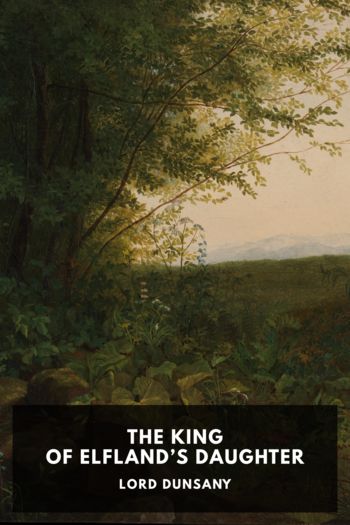Orthodoxy, G. K. Chesterton [best way to read e books txt] 📗

- Author: G. K. Chesterton
Book online «Orthodoxy, G. K. Chesterton [best way to read e books txt] 📗». Author G. K. Chesterton
I deny altogether that this is fantastic or even mystical. We may have some mysticism later on; but this fairytale language about things is simply rational and agnostic. It is the only way I can express in words my clear and definite perception that one thing is quite distinct from another; that there is no logical connection between flying and laying eggs. It is the man who talks about “a law” that he has never seen who is the mystic. Nay, the ordinary scientific man is strictly a sentimentalist. He is a sentimentalist in this essential sense, that he is soaked and swept away by mere associations. He has so often seen birds fly and lay eggs that he feels as if there must be some dreamy, tender connection between the two ideas, whereas there is none. A forlorn lover might be unable to dissociate the moon from lost love; so the materialist is unable to dissociate the moon from the tide. In both cases there is no connection, except that one has seen them together. A sentimentalist might shed tears at the smell of apple-blossom, because, by a dark association of his own, it reminded him of his boyhood. So the materialist professor (though he conceals his tears) is yet a sentimentalist, because, by a dark association of his own, apple-blossoms remind him of apples. But the cool rationalist from fairyland does not see why, in the abstract, the apple tree should not grow crimson tulips; it sometimes does in his country.
This elementary wonder, however, is not a mere fancy derived from the fairy tales; on the contrary, all the fire of the fairy tales is derived from this. Just as we all like love tales because there is an instinct of sex, we all like astonishing tales because they touch the nerve of the ancient instinct of astonishment. This is proved by the fact that when we are very young children we do not need fairy tales: we only need tales. Mere life is interesting enough. A child of seven is excited by being told that Tommy opened a door and saw a dragon. But a child of three is excited by being told that Tommy opened a door. Boys like romantic tales; but babies like realistic tales—because they find them romantic. In fact, a baby is about the only person, I should think, to whom a modern realistic novel could be read without boring him. This proves that even nursery tales only echo an almost prenatal leap of interest and amazement. These tales say that apples were golden only to refresh the forgotten moment when we found that they were green. They make rivers run with wine only to make us remember, for one wild moment, that they run with water. I have said that this is wholly reasonable and even agnostic. And, indeed, on this point I am all for the higher agnosticism; its better name is Ignorance. We have all read in scientific books, and, indeed, in all romances, the story of the man who has forgotten his name. This man walks about the streets and can see and appreciate everything; only he cannot remember who he is. Well, every man is that man in the story. Every man has forgotten





Comments (0)